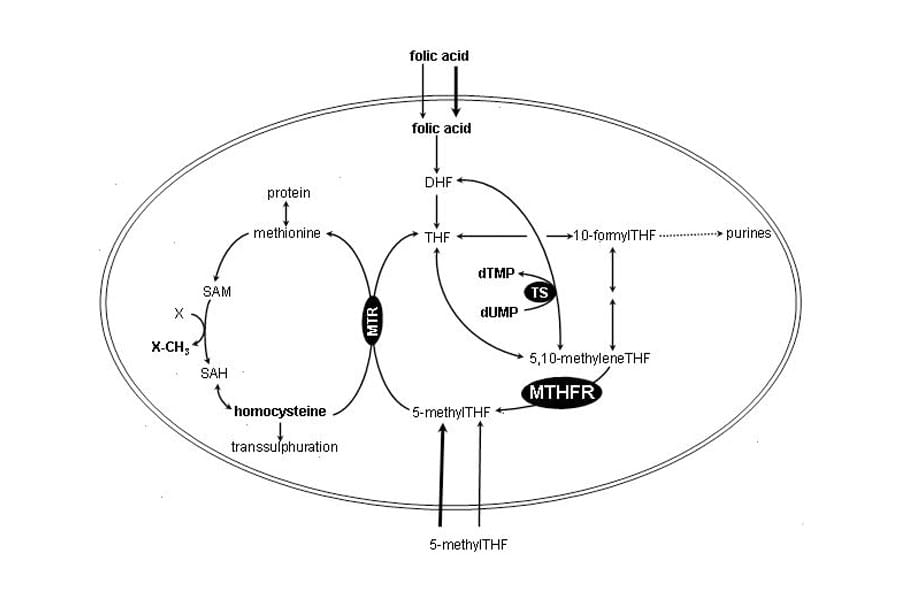The folate pathway is one of the body’s most essential processes, affecting everything from cellular repair to neurotransmitter production. Central to this pathway is methylfolate, the active form of folate that drives many crucial functions within the body. However, when there are disruptions in methylfolate production—often due to genetic variations—our health can be profoundly impacted.
In this post, we’ll explore why the folate pathway is so crucial and how issues with methylfolate production can affect overall health, from mood regulation to cardiovascular wellness.
1. What is the Folate Pathway?
The folate pathway is a metabolic process that converts folate from our diet into its active form, methylfolate. This active form is critical for several functions, particularly methylation, a biochemical process that’s essential for DNA synthesis, cellular repair, detoxification, and neurotransmitter production.
Methylation requires the presence of methylfolate to produce SAMe (S-adenosylmethionine), a molecule that acts as a universal methyl donor. SAMe provides the “building blocks” for various processes, including mood regulation, liver detoxification, and healthy cell division. Simply put, without an efficient folate pathway, the body’s ability to function at an optimal level is compromised.








